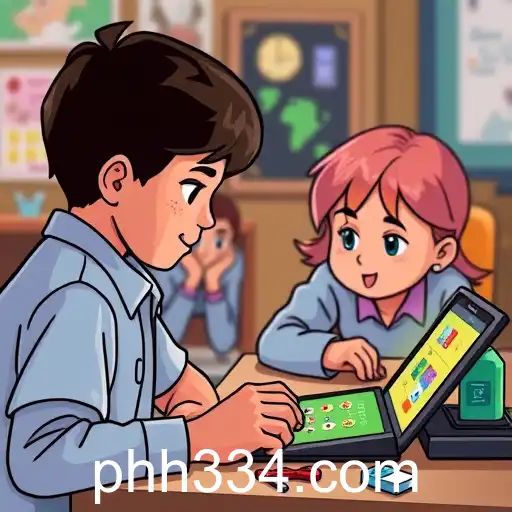In the digital age, educational games have emerged as a powerful tool in classrooms and homes alike, transcending traditional learning methods. These educational games, often tagged with keywords like 'phh33' on various gaming platforms, are becoming an integral part of the educational landscape, offering a compelling way to engage students in learning activities that are both effective and entertaining.
Educational games are designed to teach players facts, skills, or concepts in an interactive way. From math puzzles and language learning to history quests and science simulations, these games cover a wide range of subjects tailored to different age groups and learning needs. By incorporating elements of play, these games make learning more relatable and less intimidating for children and adults alike.
What makes educational games particularly powerful is their ability to tailor content to the user's pace and understanding. Adaptive learning technologies embedded into these games account for individual learning curves, offering personalized feedback and keeping students motivated with incremental challenges and rewards. This adaptability not only keeps students engaged but also helps in building confidence as they achieve milestones in their learning journey.
Moreover, educational games often promote higher-order thinking skills such as problem-solving, critical thinking, and creativity. They encourage exploration and experimentation, allowing learners to apply theoretical knowledge in virtual scenarios that mimic real-life challenges. For instance, a history game might allow players to make decisions that alter historical outcomes, helping them understand the implications of events and the interconnected nature of historical narratives.
The social aspect of educational games is another significant benefit, as many games now offer multiplayer or online community features that foster collaboration and communication. These interactions can promote teamwork and develop social skills, essential for succeeding in today's globalized world.
Additionally, educational games can serve as an invaluable resource for educators. Teachers can integrate these games into their curriculum to supplement traditional teaching methods, cater to various learning styles, and provide an interactive break from conventional classroom activities. With the ability to track progress and analyze results, educators can effectively identify areas where students excel or need additional support.
In conclusion, educational games are transforming how we approach learning by seamlessly integrating education with entertainment. By making learning engaging, accessible, and tailored to individual needs, educational games are not only enhancing student outcomes but also making the process of acquiring knowledge an exciting adventure. As technology evolves, the potential of these games will only continue to expand, opening up new horizons for learners across the globe.

Explore how educational games, found under the 'phh33' keyword on gaming sites, are revolutionizing the learning experience for all ages by combining education with entertainment.




